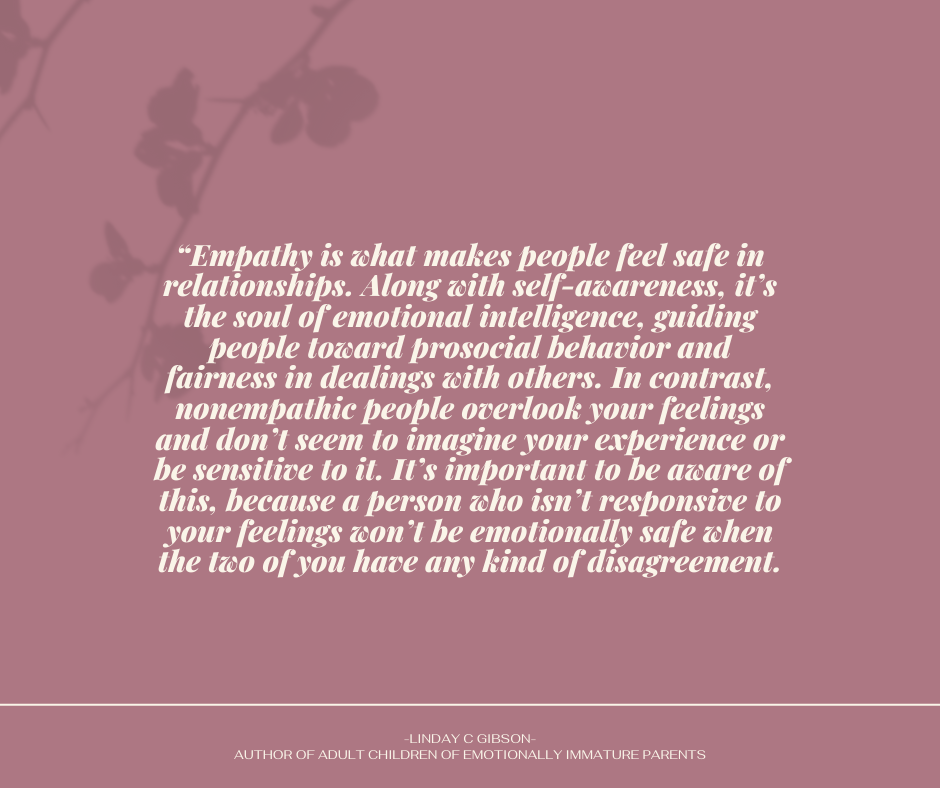What makes empathy so important

Empathy is such an important factor in healthy communication and relationships. If you can put yourself in someone's shoes, and really understand try to understand what their perspective it means that you can stop being defensive.
It can be really difficult to practice this, and sometimes even hard to become self aware enough to recognize it in the moment.
Here are some ways you might be being defensive:
- Making accusatory "you" statements when responding to someone instead of "I" statements.
- When in conversation with someone, if they keep saying, "That's not what I said," or that's not what I meant" then you are probably filtering through your own lens.
- Externalizing by using any other reason (person or circumstance) why something isn't your fault or you don't have any responsibility in a matter.
- If the person you're talking to says things such as, "I don't feel like you're hearing me" or "I don't feel like your trying to understand my perspective"
- If you say or think "what about my feelings" when someone is bringing an issue or concern to you
It is incredibly powerful to be able to truly understand another person. To understand their intentions, their fitlers, their thought process, and how or why they said or did what they did gives perspective. Hopefully, it also gives way to understanding and empathy.
It doesn't mean that you won't have hurt feelings or feelings about it.
It means you have those feelings, and can tell the other person, "It makes complete sense why you said that. I understand your actions were not meant to hurt me. While I may still feel hurt, I can work through that with a better understanding now. We can repair this together."
Empathy allows you to repair connection and heal hurt. Most people's intentions come from a good, well intended place. It doesn't mean people won't get hurt. It does mean that while hurt feelings may occur, most things aren't said and done TO BE MEAN.
Remember that.
It doesn't mean someone doesn't have to be accountable for their words or actions, and it does mean that they aren't, inherently, bad or wrong.
One can be direct without being mean.
One can be honest without being mean.
And
If you constantly believe what the other person said was mean I highly suggest you check yourself.
Because, from your perspective, if it's usually that the other person says a wrong word, offends you, has a mean tone, or there's a way they can say it better or differently, it's probably not them. It's probably you.
Because it can't always be someone else.
That's externalization.
That's not empathy.
The challenge is to see it, within yourself, and change it.
Practice empathy with yourself and others.
It is one of the most powerful tools we have.